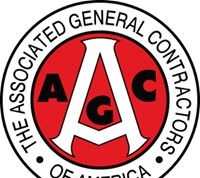What Every Homebuyer Should Know About Calgary’s Real Estate Regulations
Buying a home is a significant milestone in anyone’s life, but navigating the real estate market can be a complex journey, especially when it comes to understanding local regulations and guidelines. In Calgary, a thriving city known for its blend of urban amenities and natural beauty, real estate regulations play a crucial role in shaping the buying process. This article aims to shed light on some of the key real estate regulations that every buyer in Calgary should be aware of before seeking Calgary houses for sale.
Land Titles System
Calgary operates under the Torrens system of land registration, which means that ownership of land is determined by the registration of the property title with the Land Titles Office. This system provides transparency and security to property transactions, ensuring that buyers can have confidence in their ownership rights.
Real Estate Parcel Reports (REPRs)
Real Estate Parcel Reports (REPRs) offer comprehensive surveys that define property boundaries, position of structures, and any boundary overlaps. REPRs are essential in verifying compliance with local ordinances and rules, such as required distances from property lines. Prospective buyers should examine the REPR to avert potential legal and financial issues in the future.
Land Use Regulations
Land use regulations govern how properties and land can be utilized within specific city zones. Buyers ought to know the zoning classification of a property before purchasing it, as it affects its use or potential development. Land use regulations also prescribe factors like building height, mandatory setbacks, and the kinds of businesses permitted in particular areas.
Auxiliary Apartments and Underground Expansions
Auxiliary apartments, commonly referred to as basement apartments, are allowed in many parts of Calgary but must follow specific guidelines. These rules encompass aspects such as safety, dimensions, parking provisions, and fire safety standards. Buyers considering properties with existing or prospective auxiliary apartments should familiarize themselves with these regulations.
Permits and Inspections
Calgary mandates permits for numerous building and renovation tasks, including new constructions, extensions, or significant alterations. Potential buyers should investigate the property’s permits and confirm that all work has been carried out according to relevant building codes. Unauthorized work may result in expensive legal and safety complications.
Condominium Rules
For those thinking about acquiring a condo in Calgary, it’s crucial to grasp the rules that oversee condominium living. The Condominium Property Act delineates the rights and duties of condo residents and offers guidance for condominium corporations. This covers aspects like maintenance, fees, governance, and conflict resolution.
Property Tax Valuations
Property taxes in Calgary are calculated based on the property’s appraised value. Purchasers should examine the latest property tax valuation to foresee their potential tax responsibilities. It is worth noting that tax rates can differ depending on the location of the property and its intended use.
Environmental Rules
Emphasizing environmental conservation, Calgary enforces regulations aimed at protecting natural habitats and water sources. Buyers must remain informed about rules associated with developments close to water bodies, wetlands, or environmentally delicate regions. These regulations promote conscientious development while reducing ecological harm.
Governing Calgary’s real estate market is an array of regulations meant to protect buyers, sellers, and maintain neighborhood standards. Being a prospective homebuyer in Calgary requires a solid understanding of these rules for a seamless and knowledgeable purchasing experience. Comprehending zoning rules, examining property tax evaluations, or guaranteeing compliance with building standards will enable you to make well-informed choices in finding a home meeting your requirements and tastes. Collaborating with real estate experts knowledgeable about local rules can further improve your comprehension and steer you towards a prosperous real estate deal.














